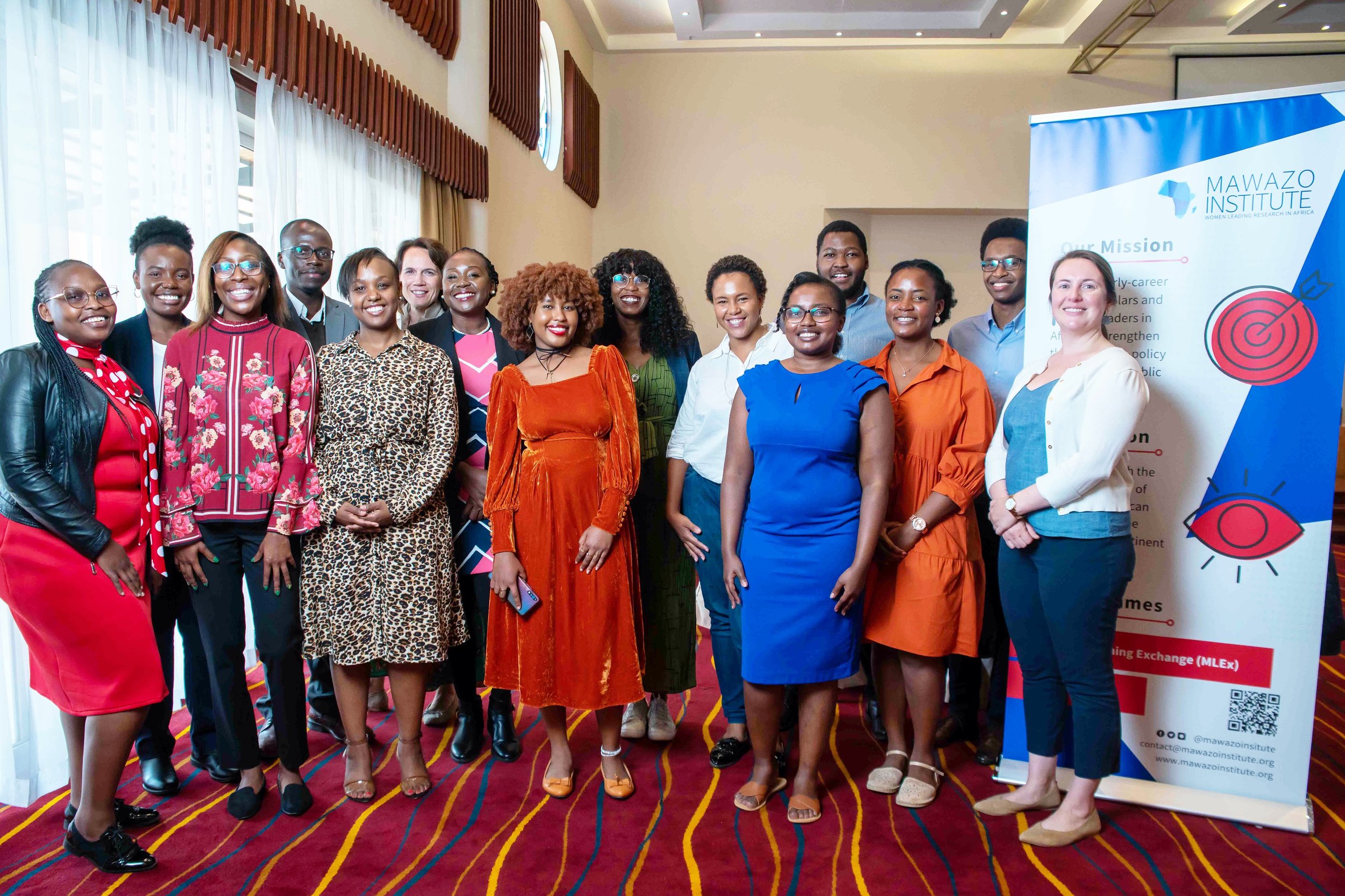After Six Years in the Nest, Mawazo Takes Flight
Toasting to our plans for Mawazo, 2016
(Pictured: Dr. Rose M. Mutiso (left) and Rachel Strohm (right))
Author: Rachel Strohm
Almost exactly six years ago, my dear friend Dr. Rose M. Mutiso came to stay with me for a few days in Berkeley, California. At the time, I was working on my PhD in political science, and Rose was based in Washington, DC, working on international access to renewable energy sources with the US Department of Energy (DOE).
Rose spoke about her passion for using academic research to inform government policy in her job at the DOE, but also wondered if she could be doing more to support other African women pursuing careers in the sciences. For my part, I had just completed a comprehensive exam in African politics which demonstrated how rarely American scholars were engaging with the research of their African colleagues, and had started reading up on the structural challenges facing African researchers.
“The Mawazo Institute was born out of this conversation, with a clear goal: to support the next generation of female thought leaders and scholars in Africa, and get policymakers and the public engaged with their work.”
Over the next year, Rose and I workshopped our ideas for supporting African women in academia with trusted advisors; raised seed funding from our family and friends; set up an office in Nairobi;and managed to confine our serious co-founder disagreements to one memorable argument about the precise shade of blue to be used in our logo. By 2018, we were ready to launch our inaugural cohort of the PhD Scholars Programme, which provided $10,000 in research and travel funding to 10 women pursuing PhDs at Kenyan universities
Six years later, the Mawazo Institute looks quite different! While we’ve stayed true to our missionof supporting African women in research, we’ve also continually experimented with thecomposition of our programmes and teams to figure out how to best achieve this goal.
Mawazo has grown from two staff members to 15, and additionally has a six-person Board of Directors. We’ve rethought our fellowship programme, and launched the Mawazo Learning Exchange (MLEx), a virtual platform for professional development and research funding for scholars across the continent, not just Kenya. Our first cohort of MLEx Fellows reached 41 PhD students across 8 African countries in 2021, and we’re looking forward to greeting our second cohort in 2023.
We’ve also invested a great deal in Mawazo Voices, a public engagement programme which positions Mawazo as a leading source of insightful new ideas from African scholars. We’ve reached global audiences through our digital offerings, such as the Nairobi Ideas Podcast, and we’re also building a community in Nairobi with in-person Nairobi Ideas Night events.
Over time, both Rose and I have evolved in the ways that we worked with the Mawazo Institute.As founding CEO from 2016-2021, Rose went from building our proof-of-concept PhD Scholars programme, to hiring and training our growing team, to signing multi-year grant awards with major donors such as the Hewlett Foundation and the Mastercard Foundation. And when Rose left Mawazo last year to pursue a role as Research Director at the Energy for Growth Initiative, she also left the organisation in the capable hands of Dr. Fiona Moejes, who initially joined the team as the Director of Programmes before being promoted to CEO.
For my part, I served as our founding COO from 2016-2018. It was important to both Rose and me that senior staff leadership roles at Mawazo were held exclusively by East African women in the long run, and after two years spent securing seed funding and getting the organisation off the ground, I stepped down to fulfill that goal.
I went on to serve as the Board Chair for another four years, until 2022. It was through the Board that I first met Kim-Andrée Potvin, who is now taking over as Board Chair. We’ve now worked together on the board for three years, and I’ve seen how our meetings have been consistently enriched by Kim’s thoughtful comments about organisational management. I’m comforted that Fiona and the team will continue to be supported by Kim and the rest of our thoughtful, committed board members.
The Mawazo team in 2022 (Pictured (left to right): Ruth Kimani, Silvia Mwendia, Ashley Muthaka,Andrew Indeche, Elaine Mungai, Kim-Andreé Potvin, Elizabeth Ngala, Shirley Irungu, Kari Mugo,Dr. FionaMoejes, Angela Mwangi, Liberty Kituu, Joy Khanali, Maina Wachira and Rachel Strohm)
As I step away from the Mawazo Institute, I’ve been reflecting on both the scale of the challenges which still face African women in academia-and also the high returns in investing in their research.
It has been very gratifying to see how the Mawazo Institute can help African women to unlock the potential of their academic research. Our grants and training have supported women doing pioneering work in their fields, like PhD Scholar Melisa Allela’s use of virtual reality to preserve African oral history. They’ve helped women tread new paths, as our MLEx Fellow Cynthia Umuhire found when she became the first woman to start a PhD in astronomy in Rwanda. And they’ve amplified the voices of people who are often marginalised within their own societies, as with our MLEx Fellow Janet Surum who focuses on academic resilience in Turkana, Kenya.
This is also a story of women who are following their intellectual curiosity, and who are committed to using research to make the world a better place, even in the face of difficult odds. It’s been an absolute honour to support their work. And as Mawazo continues to expand its training, funding,and public engagement programmes in the future,I can’t wait to see which exciting and transformative new ideas will come to light.


